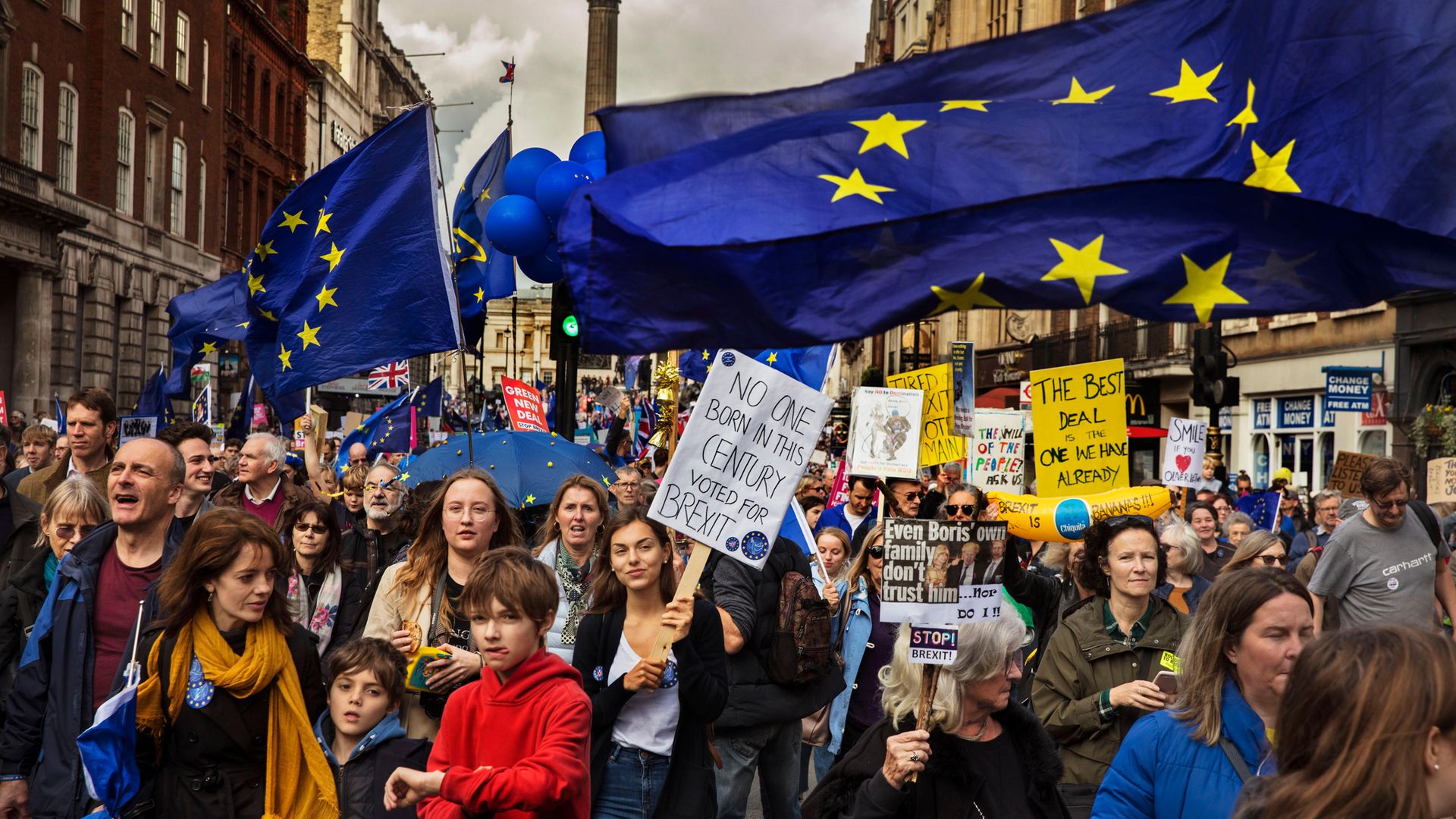
You never know what you have until it’s gone. This time five years ago, when this newspaper was first published, we were still in a state of shock. The referendum had been lost. The political class had collapsed. David Cameron had resigned. The Tory party was descending into a knife-in-the-back bloodbath. Labour was coming apart at the seams. And the unthinkable had happened: Britain was going to leave the EU.
For decades it felt like history was a wind that blew in our direction. Since the end of the Second World War, liberalism and internationalism were in the ascendant. There were steps backwards, of course. Progress took place amid the shrill reactionary bleating of the tabloids. But they couldn’t stop it for long. Europe was expanding. The WTO was consolidating. International human rights law was becoming more powerful. Society was becoming more tolerant and free.
Liberties which were once the stuff of science fiction were now a lived reality for millions of us. Free movement gave us the right to live, love, work and travel anywhere we liked in Europe. The customs union and single market allowed us to send goods from one end of the continent to another without checks or obstacles. Individuals could stand up to the might of the state using the European Convention of Human Rights.
And then the hammer came down. We were wrong about history. The truth is, it has no direction. It can go backwards as well as forwards. The great driving project of internationalism suddenly halted, then seemed to go into reverse.
There are countless causes for what happened in 2016. But the most important one is ideological. We stopped fighting for our values. It’s hard to pinpoint exactly when. But somewhere along the way, a sense took hold that society would keep on becoming more socially liberal, that the world would keep becoming more connected, as if it were some iron law of history.
As soon as you think that history points in your direction, you don’t have to fight for it anymore. And that’s how it played out. Figures like Farage would be up on TV every day, furiously making their case: against Europe, against immigration, against liberalism. And yet the voices against him were managerial and lacking in all conviction. We didn’t fight for our values in the pub, or the high street, or the water cooler. We allowed them to dry up and fossilise. And then they could be shattered with shocking ease. We all know what we’ve lost these last few years: our place in Europe, our sense of identity, our rights. In many ways, we’ve lost the sense of national togetherness, as political disagreement has been redefined as a form of treachery. But we gained something too. We learned that you have to fight for your values, that ideas need to be pumped full of blood for them to survive, not drying up without argument to sustain them. We remembered that we must agitate for our principles, even when it’s unpopular. Even when they’ll call you elitist, or an enemy of the people, or any of the other insults which have emerged over the last few years.
That sounds like it’s a friendless existence, but in truth it hasn’t been. “I shall all my life,” the philosopher John Stuart Mill said, after fighting a lonely British campaign for the north during the American Civil War, “feel united by a sort of special tie with those, whether personally known to me or not, who have been faithful when so many were faithless.”
That’s how it felt the last five years. This newspaper has been a typical example of it: a space for community, for debate, for solidarity, and for that reassuring sense that you are not going mad. We talk a lot about echo chambers nowadays. It’s a valid concern. We can’t close ourselves off from disagreement. But there are different kinds of debates for different types of context. What was previously known as the Remain movement has never been uniform. It includes people from all parties and none. It contains passionate disagreements. Should the UK adopt federalism? Should there be an electoral alliance? What does a healthy patriotism look like? How do we respond to the deprivation which super-charged the Brexit vote?
You need a space for debate within political movements as well as between them. And that is what the last five years have provided. We have discovered our own spaces – in podcasts and newspapers, in local meetings and on protest marches. Far from being echo chambers, they have thrummed with ideas and good-tempered disagreement. But they have also provided solidarity: that sense that we are not alone. Soon the nationalists will learn the lesson which we were forced to recognise: that history has no direction. It belongs to those who fight for it. That fight will be sustained by the community we’ve built and the spaces we’ve created, in which we argue, support one another and inform ourselves. It’s in these spaces that the liberal internationalism of the future will be discovered.










